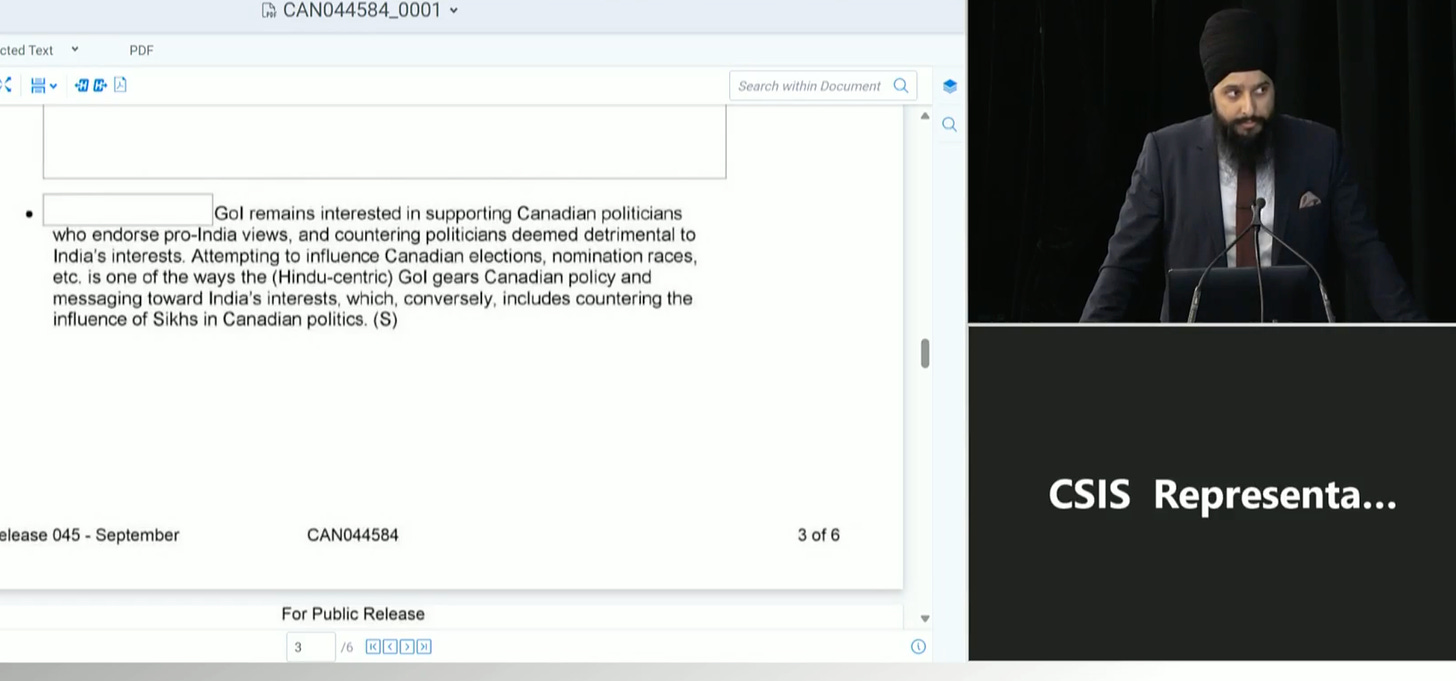Canada's Foreign Interference Monitors Cite Resource Strain in Shifting Focus from International to Domestic Threats
CSIS identifies threats from China and India targeting diaspora voters as top concerns, but Trudeau government election monitors focused on cyber threats and ideologically motivated violence
OTTAWA, Canada — The Hogue Commission has heard that Canada’s Election Monitoring task force has turned its attention to fighting global disinformation and mapping Chinese Communist Party (CCP) police stations internationally—claiming to have identified "more than 50 extraterritorial 'police stations' across the G7."
However, this focus strains resources, making it difficult to address domestic disinformation threats from China and apps like WeChat.
Officials also complained that shifting their focus to monitoring by-elections and individual ridings in Canadian general elections would require new direction and emphasis from Prime Minister Justin Trudeau’s government.
Additionally, according to documents tabled Thursday, during the 2021 federal election, the Security and Intelligence Threats to Elections Task Force (SITE) was less focused on Canadian intelligence agencies' top assessed threats—riding-level interference from China and India involving traditional diaspora interference and nomination contests—and more attuned to the Trudeau administration’s concerns about domestic threats, including ideologically motivated violence and national election cyber-threats.
But according to documents tabled Thursday, "the PRC is the most active state actor engaging in foreign interference activities in Canada [which] are part of the PRC's normal pattern of behavior and are active at all times." China's interference efforts span various levels of Canadian society and target political systems, using a network of consulate officials, intelligence agents, and proxy actors, the Commission heard. This strategy revolves around clandestine political financing that extends “for decades” and involves leveraging community groups to support candidates sympathetic to Beijing’s interests, a CSIS witness said.
Documents also showed that SITE officials were defensive in response to complaints from academics, media, and former Conservative leader Erin O’Toole, who indicated that SITE was neglectful during the 2021 election with its findings that no significant interference from China had occurred.
SITE witnesses acknowledged that the disinformation campaign detected against Conservative MP Michael Chong in mid-2023, linked to the PRC and WeChat accounts, was identified only because it occurred during a by-election period. One SITE witness agreed that the operation might have been missed if it had taken place outside the election cycle.
As a result, the Commission has been prompted to reconsider whether Canada’s election threat monitors should refocus their efforts on domestic vulnerabilities and riding-level monitoring, particularly in light of new legal requirements under Bill C-70 and the increasing use of foreign disinformation campaigns.
"That is something that collectively the Government of Canada will have to discuss,” SITE representative Robin Wettlaufer said, agreeing with Chong’s lawyer on the tension between resources devoted to domestic and external threats.
“Those discussions would be above my pay grade," she added.




